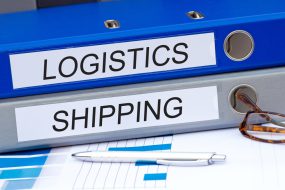International trade compliance can feel like a maze. With different trade regulations in every country, understanding how to stay compliant while keeping your business running smoothly can be a real challenge. But here’s the thing – it doesn’t have to be a headache. It can be a huge opportunity to level up your business and avoid costly mistakes. This article will explain the basics of international trade compliance and how to stay on top. Fromfreight forwardingto international courier services, we’ll explore the key areas that can help you keep your global operations on track.
Related reading: Proven strategies for startups to expand into new markets with low risk
What is international trade compliance, anyway?
At its core, international trade compliance is all about following the rules. These rules—set by governments and global authorities—ensure goods are moved safely, legally, and fairly across borders. They’re there to protect national security, keep our markets in check, and ensure products are safe for consumers.
It includes:
- Customs regulations (import/export rules)
- Export controls (for sensitive goods and technologies)
- Sanctions and embargoes (when countries don’t trade with specific nations)
- Trade agreements (special deals between countries on tariffs and duties)
How freight forwarding plays a key role
This is wherefreight forwarderscome in. These logistics pros are your best friends for keeping your shipments compliant. Here’s why:
Customs brokers to the rescue
Freight forwarders help with customs clearance, ensuring all paperwork is in order and everything is filed correctly. They save you from the nightmare of delays or fines.
Knowledge is power
Freight forwarders live and breathe international regulations. They’re your experts in the ever-changing world of trade compliance, so you don’t have to be.
Risk management made easy
Shipping goods internationally comes with its risks. Freight forwarders are pros at identifying potential hazards, helping you avoid issues before they happen.
Related reading: Stay ahead of scammers: How to identify fraudulent Aramex texts, emails and websites
How technology is changing the compliance game
Technology is here to make life easier. And when it comes to international trade compliance, it’s the one thing that could make all the difference.
Here are some of the tools that are transforming compliance management:
Automated documentation
Forget manual paperwork. Automation systems are a lifesaver for speeding up document submission, cutting out errors, and improving accuracy.
Real-time data tracking
With advanced tracking systems, you can now track your shipments in real-time. This means you won’t have to guess where your goods are or when they’ll arrive.
Blockchain tech
Blockchain isn’t just for crypto. It’s also revolutionising supply chains by making trade transactions transparent, secure, and verifiable. Less fraud, more trust.
Related reading: Data analytics: Your pathway to better business outcomes
The role of international courier services in compliance
Courier services are the final link in your supply chain and are just as crucial for compliance. International couriers must stay on top of local regulations to avoid delays and ensure all documents are spot-on.
Here’s what they focus on:
- Customs declarations: Accurate paperwork = smooth sailing.
- Restricted items: Different countries have different lists of prohibited items, and couriers must ensure that nothing slips through the cracks.
- Documentation: Proper invoices and shipping labels ensure smooth customs clearance.
How to keep compliance at the heart of your strategy
Compliance isn’t a one-and-done deal. It’s an ongoing process that requires consistent effort. Here’s how to stay ahead:
Conduct regular audits
Check your compliance procedures often. Are they working? Where can you improve? Audit your processes to stay sharp.
Training and education
Make sure your team is always informed about the latest regulations. Regular training is key to staying compliant and avoiding mistakes.
Partner with the right experts
Suppose you don’t have in-house expertise, partner with experienced freight forwarders or compliance consultants. They’ll ensure everything’s running smoothly while you focus on growing your business.
Related reading: The secret to business growth: Choosing the right logistics partner
Adapting to regulatory changes
Global trade regulations are constantly evolving. But with the right approach, you can adapt quickly and keep your business compliant.
Stay updated on regulatory changes
It’s vital to keep up with new rules and updates. If a new regulation drops, ensure you’re aware of it so you can adjust your operations accordingly.
Have a contingency plan
Regulations can shift unexpectedly. A backup plan will keep you agile and ready to respond when things change.
Communicate with regulatory bodies
Building relationships with regulators can be a huge advantage. Open lines of communication make it easier to stay ahead of changes and resolve any issues quickly.
Key takeaway
Staying compliant with international trade regulations doesn’t have to be overwhelming. With the right systems, tools, and partnerships, you can stay ahead of the curve and turn compliance into a competitive advantage. Understanding the key components of international trade compliance, leveraging technology, and working with the right experts can keep your business on track for global success. It’s all about staying agile and proactive – and turning those complexities into opportunities. Find out moreright here.


